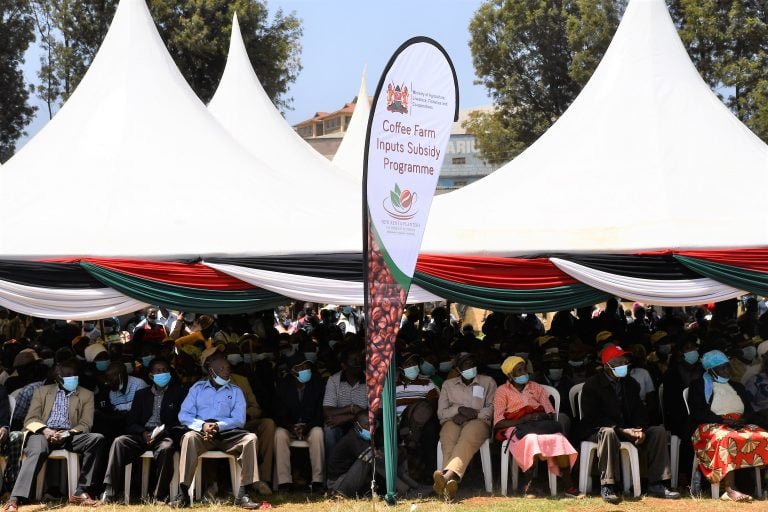The Kenyan Government has launched five agricultural reform bills. These are
- Coffee Bill 2020
- Fibre Crops Development Authority Bill 2020
- Food Crops Development Bill 2020
- Horticulture Crops Authority Bill 2020
- Miraa, Pyrethrum, and Industrial Crops Bill 2020.
Speaking at Kilimo House, Agriculture CS Peter Munya said these Government-sponsored bills are part of on-going agricultural reforms that seek to increase the farmers’ incomes, in line with the Big 4 Agenda and the Agriculture Growth and Transformation Strategy.
“The Ministry has noted that, since the establishment of the Agriculture and Food Authority (AFA) six years ago, key value-chains, such as coffee, tea, sugar, pyrethrum, and so on, have not received adequate attention. The proposed specialized laws, therefore, seek to introduce focus and clarity in the management of the various crop value-chains – since we merged all crops under one agency, (AFA),” said Munya.
The CS said that these bills will be made available for the first round of public discussion and invited stakeholders to submit their views over the next twenty-one (21) days. The public will also have a second window to more comprehensively engage with the bills upon their submission to Parliament in a month’s time.
The Sugar Bill, 2020, and the Tea Bill, 2020 are at an advanced stage in Parliament as private members’ bills. The Ministry the CS added has engaged extensively with the sponsors of these two bills, and with the members of the relevant committees who have been receptive to proposals to improve the bills in order to provide a comprehensive framework for reform of both the tea and sugar sub-sectors.
“A significant challenge we currently face in regulating all crops under a single agency, AFA, is the difficulty of designing an acceptable Stakeholder Council for multiple crops. Therefore, rather than creating a Technical Board and a Stakeholder Council as we have done with the more established crop value chains: sugar, coffee, and tea, we propose to have an Authority which will have a Board of Management with powers to develop and nurture the different crops within its cluster,” said Munya.
The CS at the same time said when all the bills come into law, AFA will be phased out which will lower running costs. He explained that even after merging different Directorates into AFA, the costs of running them did not go down adding that when the Directorates will be turned into few and lean Authorities the costs will go down.












